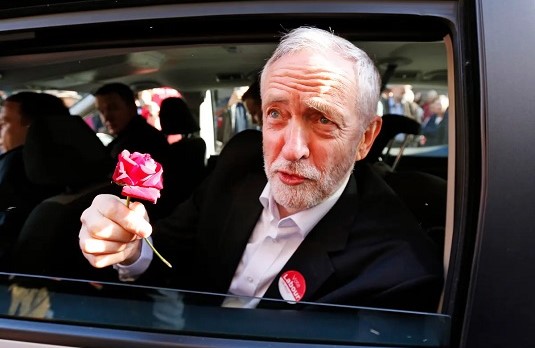The Labour Right's Corbyn Obsession

The drive to exorcise the left does have a theory of change behind it. It is imagined that bringing left wing dissenters to the square where they're publicly roasted, pelted with rotten fruit, and bull whipped in full public view is nothing but a vote winner. Therefore, expelling four tiny, irrelevant sects, being beastly about Jeremy Corbyn on every occasion, and distancing Labour from anything resembling left wing politics can only but dazzle the punters. They, after all, hate the left. And especially so the working class who voted Tory in droves in 2019.
You don't need me to tell you it's rubbish. Polls often report that Labour is not seen ready for government because, among other things, it's too disunited and at war with itself. Choosing to fix selections and disrespecting the former leader gives off vibes alright. Just not the ones the Labour right thinks it does. The trouble is as a fundamentally conservative strata in the party, they lack anything beyond anti-leftism as a unifying characteristic because they are invested in things as they stand. Right wing Labour MPs like being right wing Labour MPs, because most of them would never get such a cushy gig anywhere else. Those with a bit about themselves don't want to rock the boat too much because they wouldn't want to imperil future earnings outside of politics. As the examples of Michael Dugher, Tom Watson, Luciana Berger, Chuka Umunna, and Chris Leslie show, those positions are waiting. Party officialdom, once they get past the overworked junior stage, have an opening into head office jobs, Westminster jobs, think tank jobs, union jobs, spad jobs, and perhaps even a seat to work toward. And by far the most conservative wing of the party, the majority of Labour councillors, jealously guard their positions of influence, their allowances, and their stitched up state of affairs in the local constituency party. To think how much the democratic transformation of the party was stymied by long-established networks of cronies defending their £2,500/year borough council allowance and Big I Am personas at party meetings is frightfully sobering.
The anti-leftism then is about defending their fiefdoms, and from top to bottom the Labour right will trash everything, whether it's the party's electoral chances and/or Labour's reputation to keep hold of them. It also means anything on top, the vision they sell to voters and the positions they take are fairly eclectic as long as nothing fundamentally changes. Brownites and Blairites, the centre ground, "Labour values", Fabianism, whatever they propose that sounds good on paper they have to be pushed towards. And as the Blair years in government show, they have no such reticence about introducing regressive legislation.
Fundamentally, the constant carping on about Corbyn and the left comes from a place of fear. His election and then the unexpected advance of 2017 drove a stake of ice cold fear through their hearts. They thought they knew the world, they thought they were the master diviners of matters political, and the two Corbyn insurgencies caught them out. They still haven't got an explanation for what happened, and so it's passed over in silence. But they know despite the 2019 loss that things have fundamentally changed. The left is much stronger than before the Corbyn interlude, including within the Labour Party - despite their best efforts at driving them out and others finding alternative projects to spend their time on. On the industrial front the election of Sharon Graham presents them with something novel - a leader of a major trade union more focused on building workplace organisation and power than any of her immediate predecessors, while not having an emotional attachment to the party - and the danger of resurgent organising, which has been happening for years, and with notable victories, on the small scales the Labour right barely pay attention to. Socialist ideas are mainstream again, including those tinged with revolutionary hues. And they also know life is tough out there for tens of millions. The social is a combustible mix not seen since the foment of the Poll Tax struggle, and is awaiting a spark. Going on about Jeremy Corbyn is their coping mechanism, an imaginary anchor that steadies their boats ahead of the choppy seas and the titanic waves they feel are on their way.
Image Credit